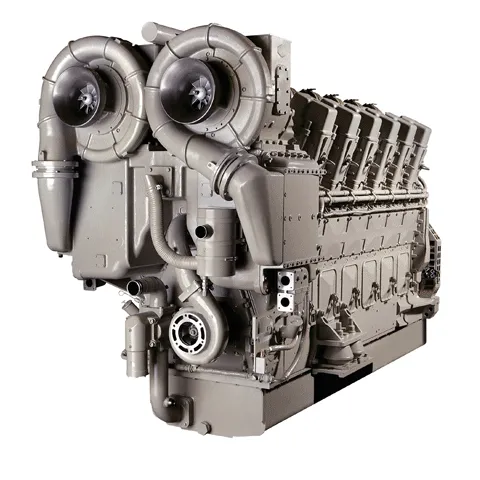A Complete Guide to Buying from Engines For Africa
A Complete Guide to Buying from Engines For Africa
Blog Article
A Full Guide to Picking the Right Engine for Your Job
Selecting the appropriate engine for your job is an essential decision that can substantially influence its general success. It is vital to meticulously define your project needs, evaluate performance demands, and take into consideration user-friendliness alongside other crucial factors. Additionally, comprehending the area assistance readily available and scrutinizing cost ramifications can additionally improve your selection. Each of these elements plays a critical function in making certain that your selected engine not only satisfies instant purposes however additionally aligns with lasting goals. As we explore these factors to consider, you might locate that the subtleties of each element disclose more than at first expected.
Specify Your Job Demands
Defining your task requires is a vital step in selecting the ideal engine for successful execution. A detailed understanding of your project's purposes will lead you in determining the capacities and functions called for from an engine. Begin by detailing the extent of your job, consisting of the preferred capability, target audience, and the certain outcomes you aim to attain.
Next, take into consideration the technical demands that straighten with your project objectives. This consists of assessing the compatibility of the engine with existing systems, along with the programs languages and frameworks that will certainly be made use of. Additionally, examine the level of scalability called for to suit future development or modifications in demand.
Spending plan constraints additionally play an essential duty in specifying your task needs. Establish a clear economic structure to lead your decision-making process, ensuring that the engine chosen fits within your budget while providing the needed performance.
Evaluate Efficiency Demands

Following, consider the scalability of the engine. Evaluate whether it can manage enhanced work as your job grows. Engines that sustain straight scaling are often preferable for bigger applications. Furthermore, review the engine's efficiency under different conditions, such as peak use situations, to ensure it meets your dependability requirements.
Think About Ease of Use
While technical specs are crucial, the ease of usage of an engine can considerably influence the advancement procedure and general project success. An user-friendly interface, clear paperwork, and streamlined operations can drastically lower the learning contour for designers, allowing them to focus on imagination and analytical instead of coming to grips with facility devices.
When assessing an engine's convenience of usage, take into consideration the onboarding experience. A well-structured intro, full with tutorials and example projects, can facilitate a smoother shift for new users. In addition, the clearness and comprehensiveness of the engine's documents play a vital function; thorough guides and API referrals can encourage developers to repair and apply functions successfully.
An engine that enables reference for simple adjustments can be extra easy to use, as programmers can tailor it to fit their specific needs without considerable inconvenience. Inevitably, picking an engine that focuses on convenience of usage can lead to an extra effective and satisfying advancement experience.
Assess Neighborhood and Support
The strength of an engine's neighborhood and support network can greatly affect a designer's experience and success. When assessing an engine, take into consideration the dimension and activity degree of its neighborhood.
Furthermore, evaluate the schedule of official assistance channels. Dependable paperwork, responsive consumer support, and regular updates are necessary for dealing with technological issues and maintaining your project on course. Engines For Africa. Active areas likewise cultivate partnership, giving chances for networking and responses, which can be invaluable, specifically for tiny teams or independent designers
In addition, examine the visibility of community-run events, such as meetups or hackathons. These celebrations can enrich your understanding of the engine while linking you with potential collaborators and knowledgeable customers. In summary, a robust neighborhood and assistance system not only simplify development official website however additionally create an atmosphere for finding out and development, eventually improving the chance of your task's success.
Contrast Price and Licensing Options
Budget considerations play a critical duty in selecting the best engine for your job, as the price and licensing alternatives can considerably affect both temporary expenditures and lasting viability. Engines For Africa. Different engines offer differing rates frameworks, which can consist of single acquisition costs, registration versions, or revenue-sharing agreements based on your job's incomes

Licensing options additionally differ dramatically. Some engines are open-source, supplying adaptability and community-driven assistance, while others may need exclusive licenses that limit use and distribution. Comprehending the implications of each licensing model is important, as it affects possession legal rights, future scalability, and potential lawful commitments.
Final Thought
To conclude, selecting the ideal engine for a task requires a complete analysis of defined task demands, performance needs, simplicity of use, area support, and price factors to consider. By systematically resolving these vital aspects, decision-makers can make sure alignment with both existing and future task needs. A well-informed selection eventually enhances the chance of job success, making it possible for efficient resource allowance and maximizing possible outcomes within the defined budgetary restraints.
Choosing the appropriate engine for your task is a vital decision that can substantially impact its general success.Specifying your project needs is a vital step in selecting the ideal engine for successful application. over here A comprehensive understanding of your job's goals will certainly direct you in recognizing the capabilities and functions called for from an engine.As soon as you have a clear understanding of your project needs, the next action is to review the efficiency requirements of the engine.In final thought, picking the appropriate engine for a job demands a comprehensive examination of specified project needs, efficiency needs, convenience of use, community support, and cost considerations.
Report this page